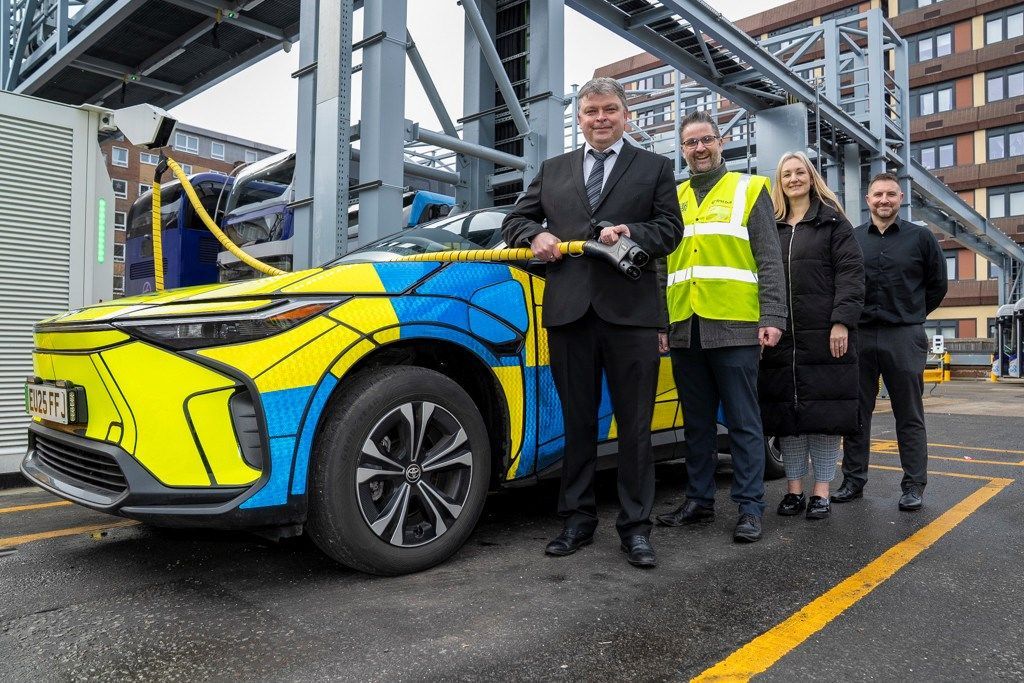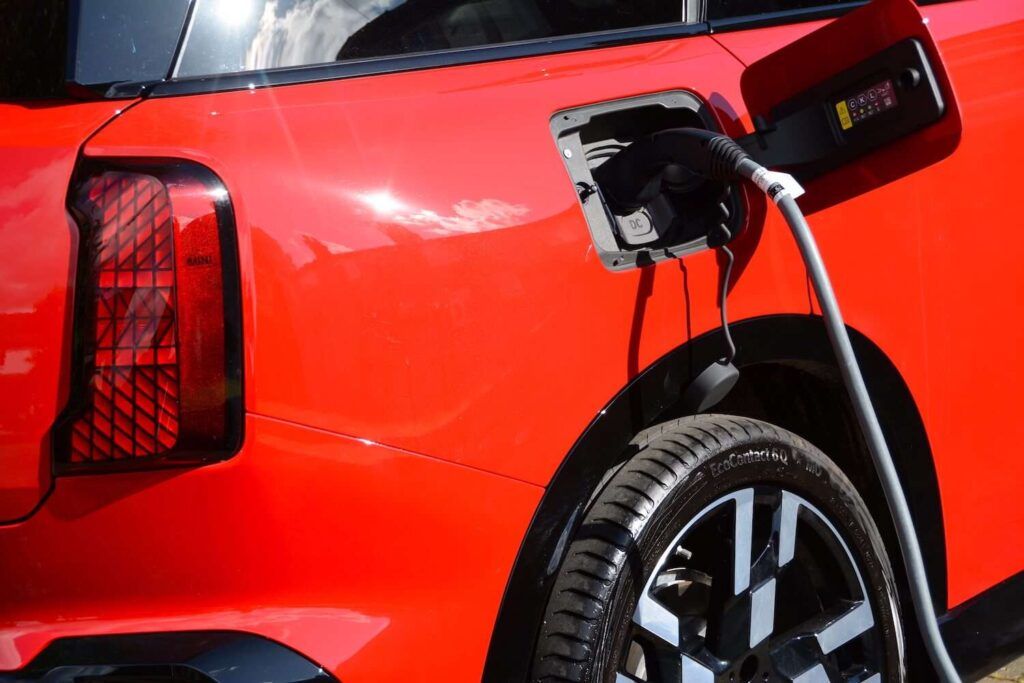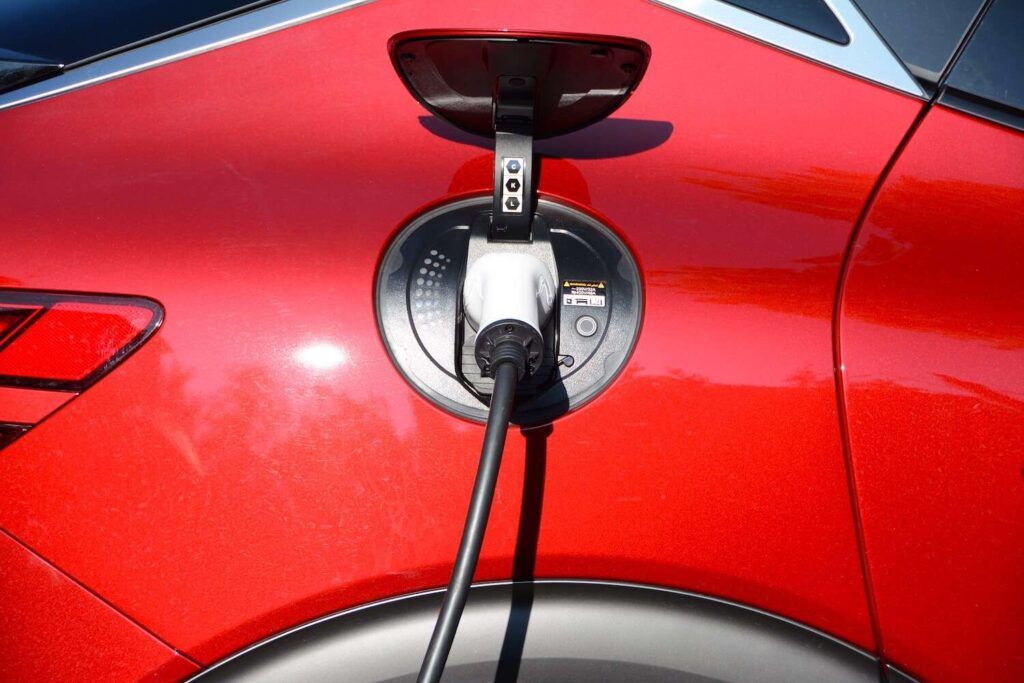Vehicle manufacturers have been given “greater freedom” on how to hit the 2030 phase out for new petrol and diesel cars, the UK Government has announced.
Alongside the ZEV Mandate changes, it also reaffirmed its commitment to the 2030 phase out of internal combustion engine (ICE) vehicles. But now smaller manufacturers will be exempt entirely from the rules – and hybrids can be sold until 2035.
Vans with an internal combustion engine (ICE) will also be allowed to be sold until 2035, alongside full hybrid and plug-in hybrid vans.
The Zero Emission Vehicle Mandate will be changed to offer “increased flexibility” with manufacturers able to sell more electric cars in later years of the policy.
It said that it would be extending the current ability to borrow in 2024-26, to enable repayment through to 2030, as well as extending the current ability to transfer non-ZEVs to ZEVs from 2024-26 to 2029, with additional flexibility to reward CO2 savings from hybrids. The government also said that “caps will be included to ensure credibility”.
A new flexibility also allows for van to car transfer, i.e. 1 car credit will be exchanged for 0.4 van credits, and 1 van credit will be exchanged for 2.0 car credits.
Writing in The Times, Prime Minister Kier Starmer also said that the fine of £15,000 per vehicle would be reduced to £12,000.
Small volume car manufacturers, often of luxury vehicles, such as supercar brands McLaren and Aston Martin, will also be exempt entirely from the Mandate targets.
Starmer added that the UK Government was about “action, not words” and described the changes as “bold” to “support the car industry” and “ensure home-grown firms can export British cars built by British workers around the world and the industry can look forward with confidence, as well as back with pride.”
The move to keep the 2030 phase out date was welcomed by ChargeUK, but it also said that weakening the ZEV Mandate created uncertainty for the UK’s charging infrastructure industry – and the opportunity for growth couldn’t be seized if the sector couldn’t “invest with confidence”.
Vicky Read CEO of Charge UK said:
“It is now vital that today’s announcement is swiftly accompanied by the comprehensive package of measures to help drivers to switch that the government has promised and which will smooth the path for charging investment.
“Without these measures we will confine the UK to the slow lane on the transition to electric vehicles instead of going further and faster as ministers have repeatedly promised.”
Transport Secretary Heidi Alexander said:
“Our ambitious package of strengthening reforms will protect and create jobs – making the UK a global automotive leader in the switch to EVs – all the while meeting our core manifesto commitment to phase out petrol and diesel vehicles by 2030.”
Chancellor of the Exchequer, Rachel Reeves said:
“The world is changing but we are determined to deliver for working people, protect their jobs and put more pounds in their pockets. That is why we are backing British business and investing in industries of the future, including our car manufacturers.”
Energy Secretary Ed Miliband said:
“This plan will benefit UK consumers by expanding the market for cars that are cheaper to run. And it will support our domestic manufacturing so we can seize this global opportunity.”
Business Secretary Jonathan Reynolds said:
“This pro-business government is taking the bold action needed to give our auto sector the certainty that secures jobs, drives investment and ensures they thrive on the global stage.”
The wider EV industry also has responded to the government’s change of policy.
Dan Caesar, CEO, Electric Vehicles UK, said:
“In uncertain times for the automotive industry, there are two certainties: China is set to cement itself as the biggest car exporting country in the world, and vehicles with plugs will dominate market share from 2030 onwards. While there’s some cautious reasons to be optimistic about the UK’s trajectory, and its ZEV mandate, its dilution is in stark contrast to the accelerating ambition of the Chinese and others.
“UK-based automakers need to fully embrace battery electric or be significantly diminished in time, running the risk of continued job losses.”
Quentin Willson, Founder EV advocacy group FairCharge and Electric Vehicles UK advisory board member said:
“We understand the pressure British car makers face and welcome the Government’s declaration of support. While we don’t agree that hybrids mainly powered by a combustion engine should be included in the ZEV mandate until 2035, we do understand the reasons why, along with increased flexibilities until 2029.
“What we do want to highlight very clearly is the Government’s recognition that Britain is now a major player in the global electric car sector and that there are tremendous opportunities to create GDP, skills, jobs and economic activity. We have been saying this for years, but for Number 10 to now declare that this is a critical moment in Britain’s ambitions to become one of the most successful and creative EV markets in the world is a mighty step forward.”
Ginny Buckley, the chief executive of Electrifying, the electric car buying and advice site said:
“Hybrid technology may have been a game-changer two decades ago, but it’s looking increasingly outdated in today’s car market. The record EV sales in March show that UK drivers are embracing the benefits of going electric – lower running costs, a smoother, quieter driving experience, and cleaner air in our towns and cities. Hybrids simply can’t compete. I believe increasing numbers of buyers will see them for what they are – a compromise from a previous era, no longer fit for purpose in the age of cleaner, more compelling alternatives. Carmakers that continue to push this legacy technology risk becoming the Kodak of the car industry.”
Colin Walker, Head of Transport, Energy & Climate Intelligence Unit:
“In weakening the mandate elsewhere by extending flexibilities and allowing the sale of standard hybrids between 2030 and 2035, the Government risks reducing the competition it has stimulated between manufacturers, meaning prices for families seeking an EV might not fall as fast, and sales could slow. The growth of the second-hand EV market, where most of us buy our cars, would in turn be stunted – leaving millions of families stuck in petrol and hybrid cars paying a petrol premium of hundreds, and even thousands, of pounds a year.
“The question now is will this have a negative impact on growth? Could the higher driving costs associated with petrol cars stifle a growth in activity elsewhere in our economy? Will billions in investment in the UK’s charging infrastructure, and its wider economy, be held back? Since global EV sales are only going in one direction – up – any risk of the UK falling behind puts hundreds of thousands of jobs at risk.”
Matthew Adams – Head of Transport and Innovation at the Renewable Energy Association (REA) – said:
“Today’s announcements are disastrous for the environment and the charging sector. With the Government saying in December that real world emissions for plug-in hybrids are 243% higher than previously estimated it is clear that a decision to allow their sale until 2035 does not benefit the environment, consumers or the air they breath. Meanwhile the strengthening of flexibilities mean there is now more uncertainty than ever over how many EVs will actually be sold each year. This means that we risk seeing the Government make further concessions when they have to announce the fixed 2031-35 sales targets.Investors in the charging sector are watching. This is a terrible day for the environment, the charging sector and consumers.”
Edmund King, AA president, said:
“Today’s announcements are a pragmatic step forward which we hope will help manufacturers and give confidence to drivers. The inclusion of hybrids can act as a stepping stone to help those not yet ready to make the full switch to electric.
“Our consistent message to government is more needs to be done to make EVs accessible for everyone. Generally, drivers are hesitant, but most are not hostile to the change. Help is needed to stimulate demand for EVs including broader fiscal incentives. Drivers still raise concerns about cost of purchase, cost of charging and availability of chargers. Range anxiety itself is a thing of the past as AA breakdown figures show only 1.85% of all EV breakdowns are due to running out of charge compared to approximately 1% of ICE vehicles running out of fuel.”
Ian Plummer, Commercial Director of Auto Trader commented:
“The government have gone some way to supporting the industry with the ambitious ZEV mandate targets by relaxing flexibilities and allowing hybrid sales to contribute to targets. However, the measures are still not enough. There are more new and used EVs than ever on sale now increasing the choice and affordability of the cars, but at this critical moment for the global economy ministers should underpin consumer demand with tax breaks, such as cutting VAT on public charging.”
Sue Robinson, CEO of NFDA, commented:
“NFDA has been lobbying, on behalf of its members, to have amendments made to the ZEV mandate for several years. The previous iteration of the ZEV mandate was causing significant harm to the UK automotive sector, which as the Government rightly points out, employs 152,000 people and adding £19 billion to the UK economy.
“We therefore welcome the changes made today as a step in the right direction for the UK automotive sector however it is vital that more incentives are available to encourage the consumer to move to EVs. The electric vehicle targets remain in place and the fines still remain too high for manufacturers. The UK remains the most aggressive regime for the EV transition and we would want the UK Government to align with the rest of Europe, in order to make our market as competitive as possible in a rapidly changing global marketplace.
“NFDA will continue to work with its members and the UK Government to ensure that the transition is a fair transition where consumers can afford new electric vehicles and manufacturers globally are confident in the UK automotive sector.”
Dominic Phinn, Head of Transport at Climate Group, said:
“The Government is sticking to the 2030 phase-out for petrol and diesel cars – that’s the good news. But introducing flexibilities to legislation that is clearly doing its job confuses the market and hampers the roll-out of infrastructure. The UK’s ZEV Mandate is a global success story which turned the UK into a leader in the transition of road transport. If we want to keep it that way, the government should bring together the energy, charging, and public sector, together with the car industry, to speed up, not slow down, the UK’s charging and grid infrastructure. A competitive car industry will inevitably be driven by confident EV leaders, not by those asking for ever more flexibilities to a framework that’s designed to help them along.”
Warren Philips, Chair of EVA England, said:
“For drivers to consider switching to electric they need clarity and certainty and it’s encouraging to see the Government confirm no new petrol or diesel cars will be sold from 2030. These targets are an essential roadmap to help drivers plan ahead.
“The transition will not take hold on its own however and it is disappointing no additional measures were included today for drivers who, similarly to car manufacturers, need some support to make the switch. We need Government input to tackle high EV upfront costs in the short term and to help more households access charging affordably, especially for those who can’t easily plug in at home. Failing to tackle prevailing barriers to uptake will scupper the Government’s rightly ambitious targets to move away from petrol and diesel this decade. We look forward to working with the Government on its Industrial Strategy and beyond to ensure these essential measures are considered and the transition to electric is shaped with drivers’ needs in mind.”
Mike Hawes, SMMT Chief Executive, said:
“The government has rightly listened to industry, responded quickly to global dynamics and recognised the intense pressure manufacturers are under. Industry remains committed to decarbonising road transport but the ZEV Mandate targets are incredibly challenging, especially with a paucity of consumer demand and geopolitical upheaval. Growing EV demand to the levels needed still requires equally bold fiscal incentives, however, to give motorists full confidence to switch.
“We await full details of the regulatory amendments but, given the potentially severe headwinds facing manufacturers following the introduction of US tariffs, greater action will almost certainly be needed to safeguard our industry’s competitiveness. UK-US negotiations must continue at pace, while the long-awaited industrial and trade strategies should prioritise automotive and be delivered at speed.
“In this vastly changed world, a package of measures is needed to support manufacturing, especially the supply chain, so our industry can deliver the economic growth, jobs and investment the country needs.”
Image from Shutterstock












